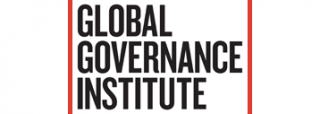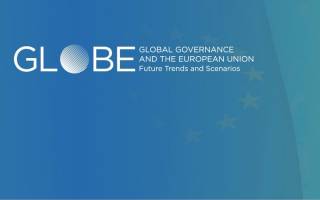Members of the GGI network weigh in on the various governance implications of the Coronavirus (COVID-19) pandemic.
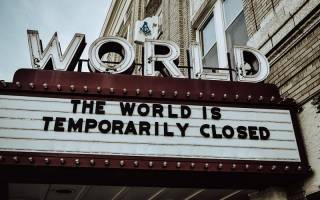
COVID-19 is not just a failure of global health governance but, more fundamentally, a failure to recognise health as an inherently global problem. A commentary by the GGI's Tom Pegram and Julia Kreienkamp.

Pandemics and other global systemic risks cannot be successfully addressed anywhere unless they are addressed everywhere. Julia Kreienkamp comments on the prospects for novel thinking in global governance in light of COVID-19.
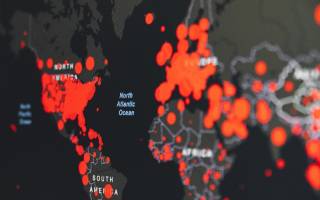
The growing use of artificial intelligence (AI) tools and technologies in public health interventions raises novel challenges for global governance, argue Dr Tom Pegram and Dr Buğra Süsler.
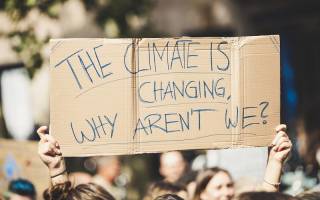
With COP-26 in Glasgow postponed due to Covid-19, Dr Elisa Calliari , Dr Jaroslav Mysiak and Professor Lisa Vanhala suggest that parts of the meeting could be conducted digitally to maintain political momentum and ratchet up ambitious climate action.
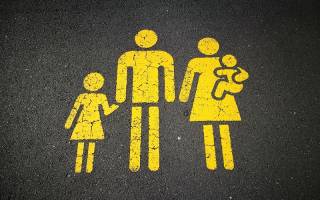
Why implementing maternity leave policies should be easier after Covid-19
The Covid-19 pandemic has prompted rapid policy interventions around the world. Global leaders should demonstrate the same level of determination when it comes to women's health, argues Salwa Mansuri.

Science-as-unusual in a post-COVID-19 pandemic world?
Dr Julius Mugwagwa and colleagues reflect on the implications of the COVID-19 pandemic for the future of science and engineering.

Responses to the COVID-19 crisis threaten to accelerate a global trend of increasing government restrictions on civil society, warn Professor Kristin M. Bakke, Professor Neil J. Mitchell and Dr Hannah M. Smidt.

A net-zero emissions economic recovery from COVID-19
This COP26 Universities Network’ policy briefing outlines a green economic recovery from the pandemic, drawing on research from internationally-recognised experts at universities across the UK, including Professor Paul Ekins at UCL.

Coronavirus is a failure of global governance
The COVID-19 pandemic highlights the need for a radical transformation in how we design and manage authoritative health governance both domestically and at a global scale, argues GGI Deputy Director Dr Tom Pegram.

Professor David Tucket and colleagues argue that decision-makers must act creatively to make good decisions in situations of radical uncertainty, while recognising that there are no ‘optimal’ responses.

Professor Claudio M. Radaelli and Dr Jonathan Kamkhaji argue that the surprising nature of the coronavirus crisis means governments cannot base their response on scientific evidence alone.

In this interview with NPR, Professor Sarah Hawkes explains why understanding gender disparity in COVID-19 mortality rates is crucial to an effective response.

Professor Ilan Kelman and Dr Emily Morris explore Cuba's unique strengths and weaknesses in dealing with the current pandemic.

Financial regulation suspensions in times of crisis
Professor Iris Chiu and colleagues comment on widespread financial regulation suspensions during the COVID-19 crisis, arguing that regulators should have a perspective of counter-institutionality in exercising emergency powers.

Given the long-term challenges of climate change, biodiversity loss and repeat pandemics, Professor Mark Maslin and colleagues reflect on the governance lessons learned from the COVID-19 crisis.

In the COVID-19 crisis, we have seen considerable efforts geared towards top-down biopolitics. However, as Professor Claudio M. Radaelli and Dr Roberto Baldoli argue, we have also witnessed the emergence of bottom-up, non-coercive practices of health protection under conditions of emergency.

Professor Paul Ekins discusses what we can learn for the climate emergency from how societies and governments are responding to the COVID-19 crisis.

Dr Julius Mugwagwa and colleagues argue that the current crisis may spur African leaders from ‘political will to political action’ with regard to strengthening local health systems.
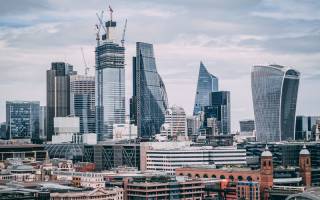
Covid-19: Implications for international financial regulation
In this OMFIF podcast, Paul Tucker, chair of the Systemic Risk Council and former deputy governor of the Bank of England, discusses the implications of coronavirus for the world economy.

Professor Raimund Bleischwitz discusses the need to address both the COVID-19 pandemic and the climate emergency in a coordinated manner.

The current COVID-19 pandemic brings to the fore the stark reality of an ever-inevitable reversion to local medical health capabilities for addressing local needs, argues Dr Julius Mugwagwa.
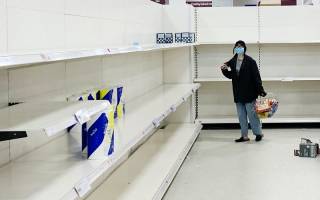
Professor Ilan Kelman argues that we must understand the COVID-19 disaster as an outcome of human choices.
 Close
Close


